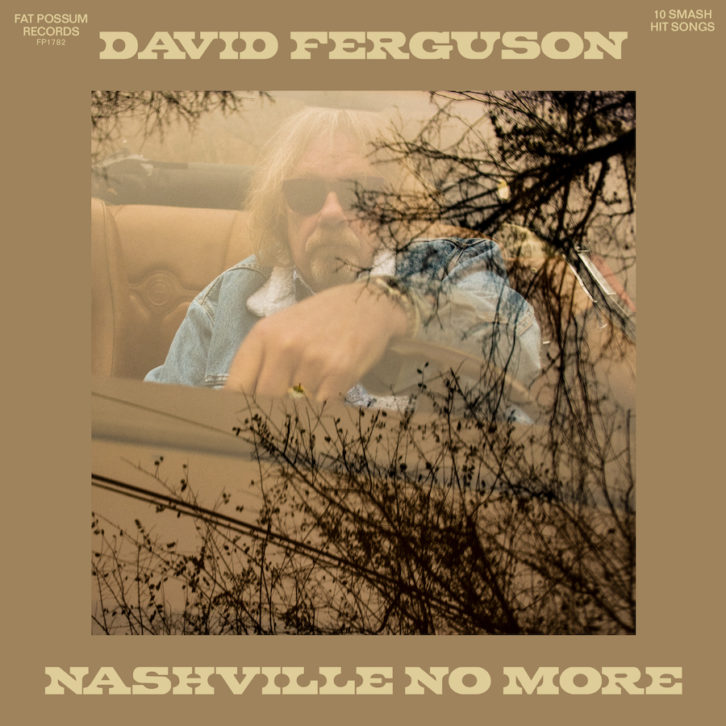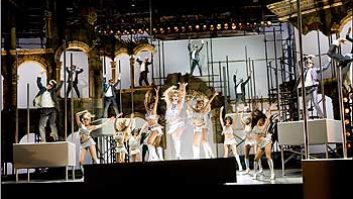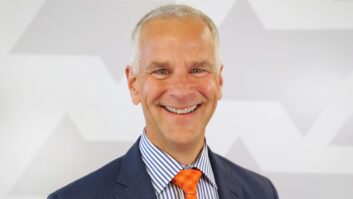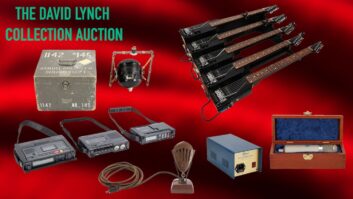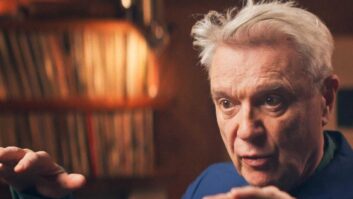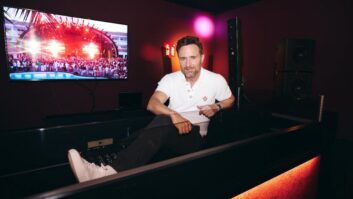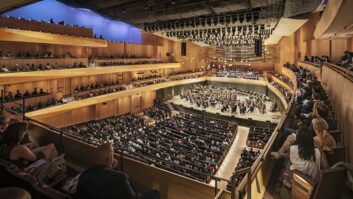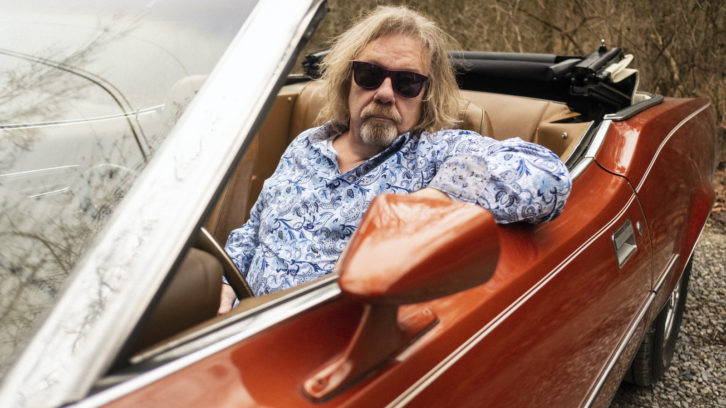
Whether you call David R. “Fergie” Ferguson a Renaissance man or a polymath, he has certainly done a thing or two during an eventful career. Based in Nashville, he’s made a name for himself as an engineer, producer and musician, racking up an impressive list of credits, including two Grammy Awards, with some of the biggest names in country and bluegrass music.
He palled around for years with Johnny Cash and John Prine. He worked with U2 on the band’s 1988 album, Rattle & Hum. He even had an acting role in the 1989 Jerry Lee Lewis biopic, Great Balls of Fire! Now, Ferguson has released an album—Nashville No More—under his own name.
Ferguson came up the old-fashioned way, running errands in his late teens at “Cowboy” Jack Clement’s Cowboy Arms Hotel and Recording Spa, the country music legend’s home-based studio in Nashville. Starting out in 1980, Ferguson was mentored by Cowboy Jack and chief engineer Jack “Stack-a-Track” Grochmal, whose credits from the period included sessions with Johnny Cash, John Prine, Marty Stuart, Nanci Griffith and Tracy Nelson.
Grochmal, who began his career in Hollywood working at Capitol, Wally Heider Recording and RCA, and Clement, revered as a jack of all trades for being able to turn his hand to any aspect of music production, worked in very different ways, Ferguson says. “Jack Clement was a no-headphone kind of guy. He cut flat with no EQ and no compression; you did it by moving microphones around.” Clement passed away in 2013 at the age of 82.
START WITH MUSIC
Ferguson always wanted to work in music production. “Back in the day, to go in the studio and make a record was a very special thing,” he says. “And people knew it was special and they treated it special, even the engineers and the producers. I was thankful I was able to find a trade that I loved as a young man and be able to keep doing it.”
Along the way, he also became a musician. “My grandfather showed me a few chords on the guitar when I was young, but I never could focus enough to really learn. Then I got a bass and plucked around a bit. When I went to work for Jack Clement, one of my jobs was to sit at the front desk and answer the phone while the secretary was out to lunch. I would sit there, play the guitar and learn some songs. There was an upright bass in the hallway, and I’d pluck on that a bit. It got to where I could play pretty well, and Jack taught me to play rhythm guitar to him playing the Dobro. So I just eased into it.”
In 2005, after having to move out of a previous location, Ferguson set up a recording studio in Nashville with John Prine. It’s there that much of his new album, Nashville No More, out now on Fat Possum, was recorded, he says.
The Butcher Shoppe, located in a former meatpacking building, certainly saw its fair share of high-profile projects. Sturgill Simpson worked on A Sailor’s Guide to Earth there, garnering the Kentucky-born songwriter and Ferguson the 2016 Grammy Award for Best Country Album. Ferguson won his first Grammy three years earlier in the Best Bluegrass Album category for the Del McCoury Band’s The Streets of Baltimore, also produced at the Butcher Shoppe. The Earls of Leicester, Tyler Childers, Matt Sweeney and Bonnie “Prince” Billy all brought projects to the facility.
But the Butcher Shoppe was living on borrowed time. “The developer was really nice; he gave us years of warning,” Ferguson says. “And he kept putting off when we had to be out.” Come June 2020, time was up. Coincidentally, and tragically, Prine had passed away barely two months earlier. While Prine rarely recorded at the studio, Ferguson says, “He still had an office across the hall. When he passed away, it really knocked the wind out of my sails. He was a really great guy.”
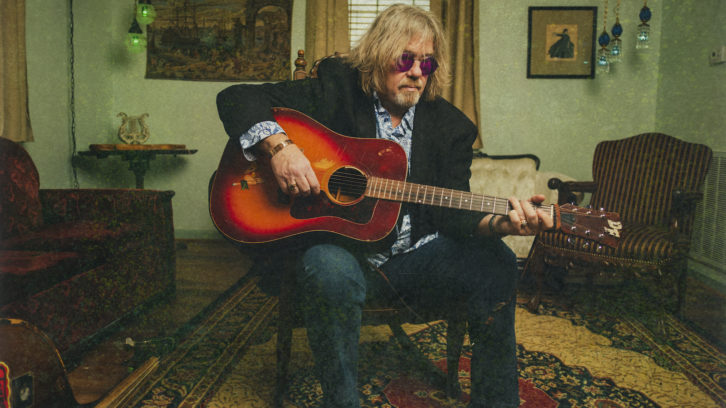
[RE]BUILD THE STUDIO
Having had fair warning, Ferguson had been making plans for a replacement studio: “A couple of months prior, I started working on a control room in an outbuilding on my property. I brought over my Sony MXP3036 console, plate reverb, AKG spring reverb and Ampex tape echo machine, so it’s all the same stuff.”
Ferguson was itching to get to work, but the pandemic was raging. “Nashville shut down for a few months, and I just wanted to work on something because I had my new control room. I started digging through my stuff and put the record together.”
As it turns out, a good number of the songs on the new album date back quite a few years, as do some of the initial recordings. “I had a studio, so through the years I’d make a tape if I heard a song I liked. Some started out with me and a guitar, some with me and a guitar and a click track, and some were cut with a band, like ‘Nights With You’ and ‘My Autumn’s Done Come.’ Those are from the same session on the same day and the same players, except for the strings. Those are with live vocals that I cut that day.”
By and large, though, Ferguson’s vocals are recent, recorded at his new home studio. “I sing most of my vocals in front of the console,” he says. “I handhold an SM7. If you have the playback volume right and you’re not amplifying your voice through the speakers, there’s so little leakage.”
OLD SONGS, NEW SONGS
A couple of the songs on Nashville No More date back to the 1980s, when Ferguson recorded the songwriter demos at Cowboy Arms, including “Looking for Rainbows” and “Nights With You.” Ferguson recalls, “‘Fellow Travelers’ was one Jack [Clement] would play in his office a lot. He really liked that song, and I grew to like it.”
Ferguson had another reason to include “Looking for Rainbows” and “Fellow Travelers,” he says. “They were both co-written by Charles Cochrane, a string arranger, piano player and really great musician that was killed in a car wreck in ’07. I had recorded him playing those songs on the piano for his wife to sing at a wedding. I found those tracks, and they happened to be in my key, so I recorded the voice on those tracks and overdubbed everything else. Charles was a really close friend, so I’m really happy those songs are on here. And ‘Looking for Rainbows’ is a beautiful song.”
Ferguson learned “Early Morning Rain,” written by Gordon Lightfoot, from Prine. “I do his version of it. I don’t think he ever recorded it. I cut that with a click. During the pandemic, I sent it around to the guys to put their parts on there.”
Ferguson doesn’t drop any names, but “the guys” who collaborate with him on this album, many of whom also passed through the Butcher Shoppe over the years, will likely be familiar to anyone with even a passing interest in country, bluegrass or blues music. On vocals, there’s Margo Price, Sierra Hull and Justin Moses. Jerry Douglas, Stuart Duncan, Béla Fleck, Ronnie McCoury, Tim O’Brien, Dan Auerbach, Mark Howard (the Nashville-based musician, engineer and producer is another Cowboy Arms alumnus) and Billy Sanford contribute guitar, banjo, mandolin and other instrumental parts.
Once the album was finished, Ferguson says, “I sent it to my friend Matt Sweeney, who’s a great guitar player and a fine musician, songwriter and producer. He went nuts over it and sent it over to Matthew Johnson [label co-founder] at Fat Possum. The next thing you know, the phone is ringing.”
